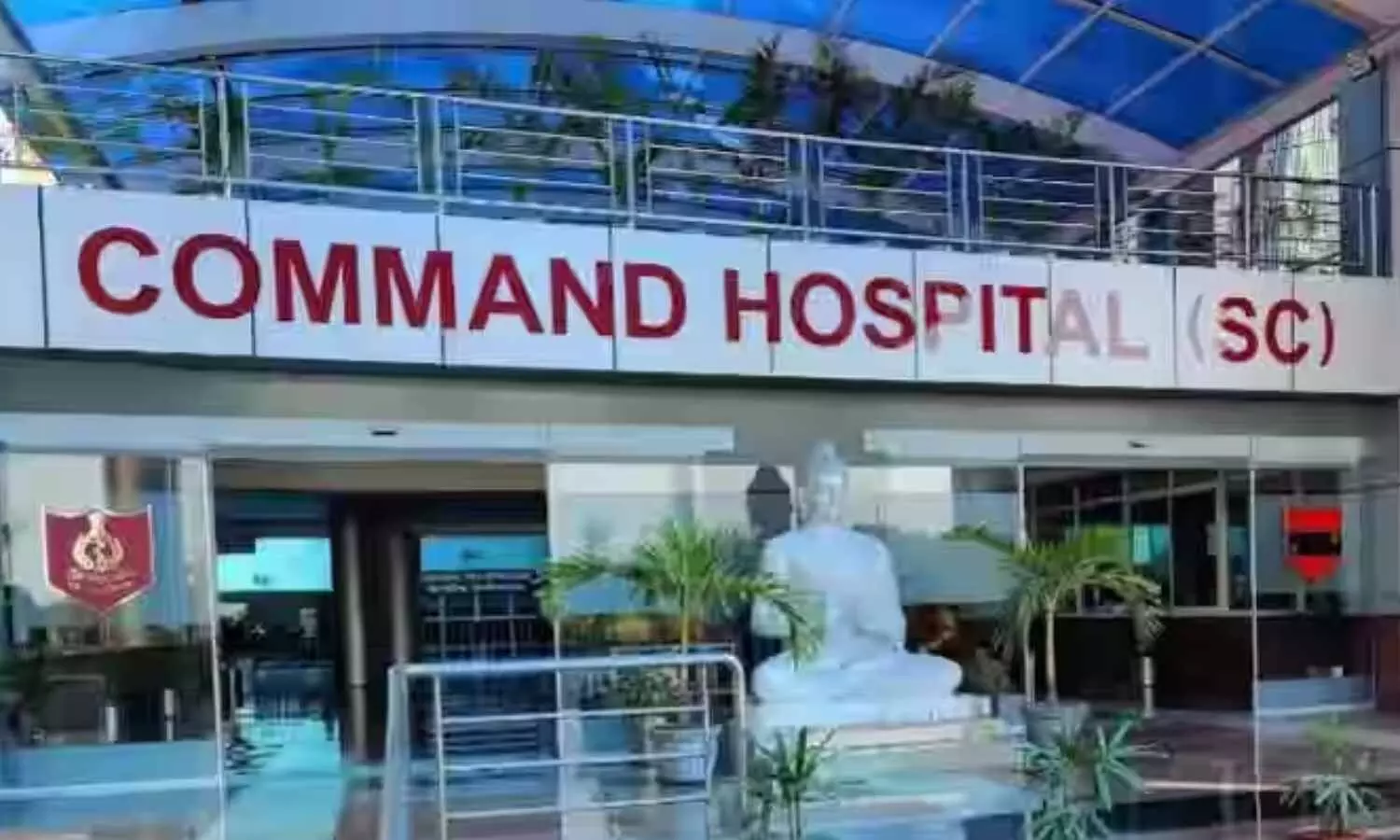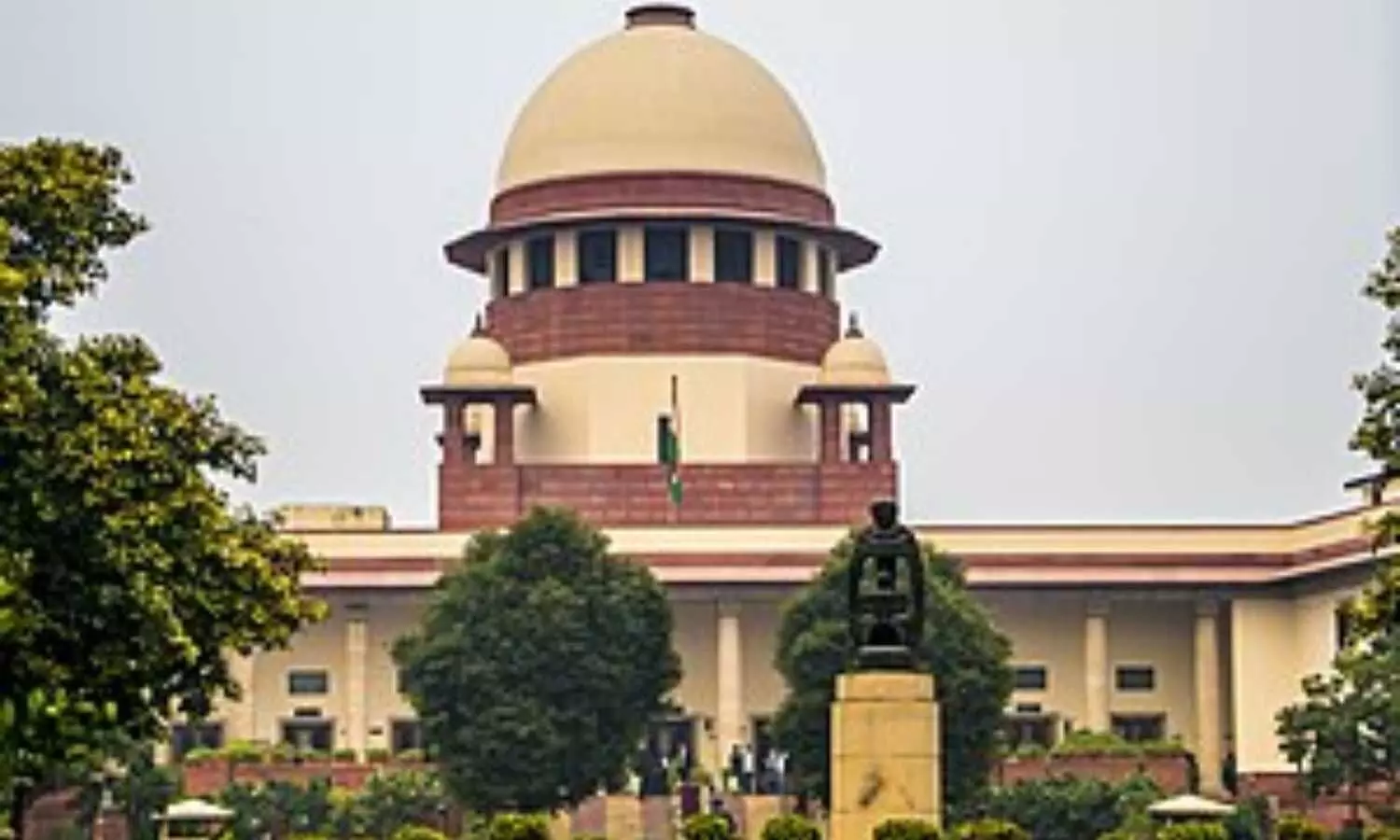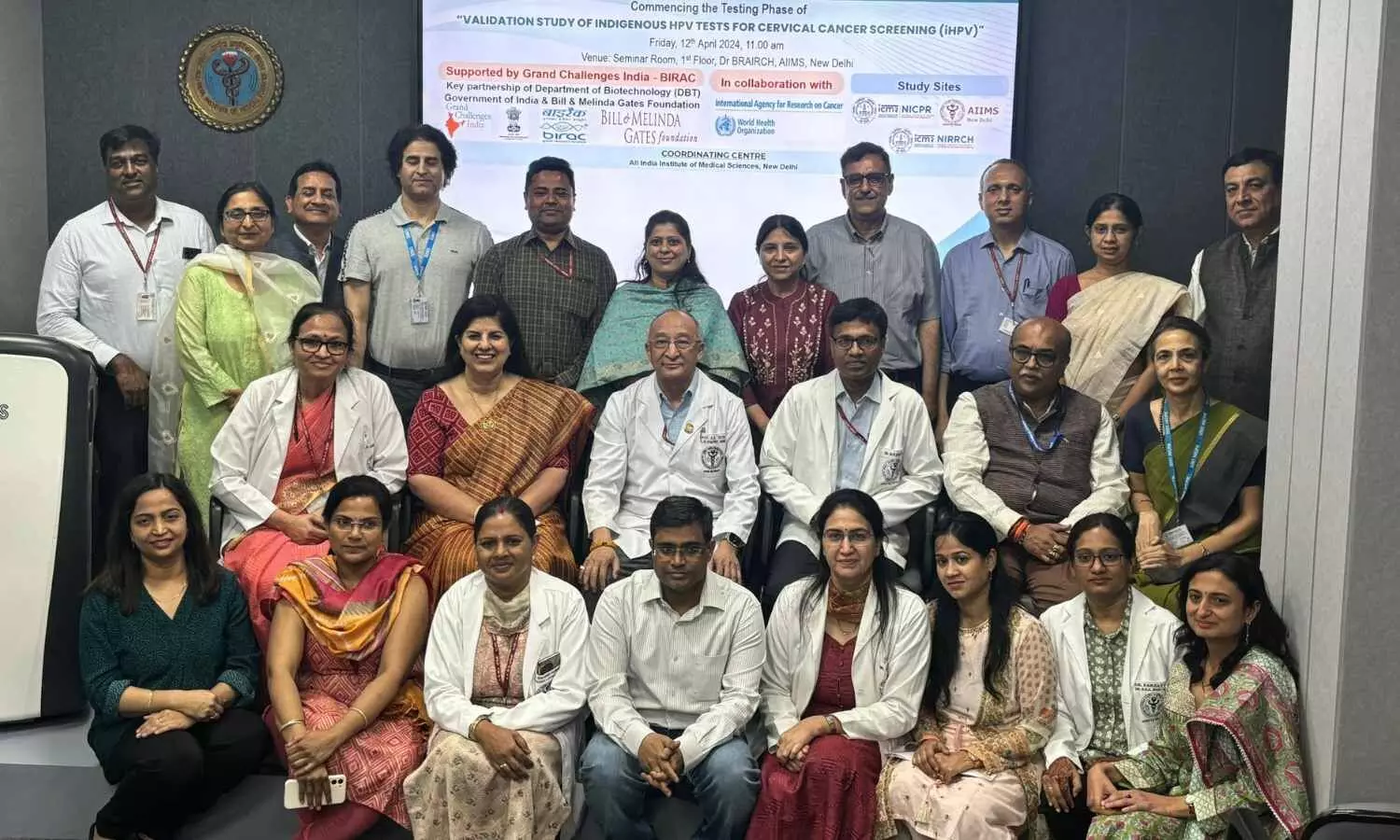Medical Bulletin 13/ April/ 2024

Here are the top medical news for the day:
Does replacing beef with fish like sardines prevent early death?
Powered by WPeMatico

Here are the top medical news for the day:
Does replacing beef with fish like sardines prevent early death?
Powered by WPeMatico

Mumbai: Depressed over scoring low marks in exams, a second-year MBBS student allegedly ended his life after hanging himself from the ceiling fan at his residence on Friday in the northern Mumbai suburb of Kandivali.
According to the police. the 22-year-old student from Vilasrao Deshmukh College in Latur reportedly lost all hope in life after receiving his exam results on Friday. This further intensified his feelings of frustration and depression, as he once again scored low marks.
It was alleged that the deceased was taking medication for depression in the past few days leading up to his tragic decision. His family members are said to have known about his worries regarding his poor exam results.
Also read- Depressed Over Low Marks In Prep Test, NEET Aspirant Commits Suicide In UP’s Etah
The student was found hanging in the hall of his house when his mother was in another room and his father was out for work. Staying at home for the last two months, he allegedly committed suicide on Friday at around 11:30 am.
As per a Free Press Journal news report, the incident occurred when his mother was busy in the kitchen unaware of what had happened with his son. However, she was shocked soon after he came into the hall and discovered her son’s body hanging from the ceiling fan with a scarf.
Following this, he was immediately rushed to Shatabdi Hospital where the doctors declared him dead.
“His mother spotted him hanging and alerted her husband and neighbours. He was rushed to hospital where doctors declared him dead on arrival. The family has told us they do not have complaints against anybody in connection with the incident,” the official informed PTI.
Anand Bhoite, Deputy Commissioner of Police (Zone-11), told the daily, “No suicide note was found at the home. The body has been sent for postmortem and the report is awaited.”
The police have registered an accidental death case in this regard and an investigation is underway. Moreover, they have recorded statements from his relatives, who said that the deceased interacted with them normally when they visited his house.
Also read- Depressed Over Obesity, MBBS Student Commits Suicide In Mangaluru
Powered by WPeMatico

Jaipur: Following the crackdown of a major racket involving the sale and purchase of fake no-objection certificates (NOCs) for organ transplant, the Anti-Corruption Bureau (ACB) on Thursday questioned 6 doctors and other employees of Fortis and EHCC hospitals.
After the agency ended the interrogation of the doctors, they seized their mobile phones and sent them to the Forensic Science Laboratory (FSL) for investigation. Some of the doctors who were questioned have the possibility of getting arrested soon.
Also read- Karnataka Sex Determination Racket: CID Names 3 Doctors Among 19 Suspects In Final Report
Meanwhile, on the same day, the agency also produced the arrested organ coordinator of Fortis Hospital who was remanded to one day in custody to the court.
ACB DIG Dr Ravi told Udaipur Kiran, “Doctors from both hospitals are being questioned in this case. Some doctors may be arrested soon. On Thursday, half a dozen doctors and others were also questioned. The mobiles of six doctors have been seized and sent to FSL for investigation.”
Medical Dialogues team had earlier reported that the Jaipur Anti-Corruption Bureau (ACB) team arrested three hospital employees in this case.
The three accused were identified as an administrative officer of the government-run Sawai Man Singh (SMS) Hospital and transplant coordinators of two leading private hospitals- EHCC Hospital and Fortis Hospital.
According to the Deputy Inspector General of Police (ACB), Ravi, the accused were caught red-handed at the hospital while allegedly taking a bribe of Rs 70,000 for issuing NOC for organ transplants.
The state government issued an order stating it has suspended the accused from the position of assistant administrative officer of SMS Hospital after his arrest by ACB in the case.
According to a statement released by the ACB, a complaint was received that fake NOCs for organ transplantation were being issued by an employee posted at SMS Hospital in collusion with the middlemen, without obtaining approval from the committee concerned.
Also read- Rajasthan: Fake Organ Transplant NOC Racket Busted; 2 Suspended, 1 Terminated
Powered by WPeMatico

Pune: Department of Ear, Nose and Throat (ENT) at Command Hospital (Southern Command) in Pune has conducted two piezoelectric Bone Conduction Hearing Implants (BCI) in a 7-year-old male child suffering from congenital external and middle ear anomalies with severe degree of hearing loss and one adult with Single Sided Deafness (SSD), becoming the first government hospital across the country to procure and conduct the successful piezoelectric bone conduction hearing implants.
The ENT department of Command Hospital (Southern Command) is a designated Neurotology centre of the AFMS. The dept. has been providing Implantable hearing solutions to dependent clientele for a number of years. Active piezoelectric bone conduction hearing implant system is an implantable medical electronic device for hearing-impaired patients [conductive loss (including aural atresia), mixed hearing loss and single-sided deafness]. The cost of the equipment has always been a concern, making its outreach limited.
Also Read:Army Chief inaugurates 650-bedded Command Hospital Complex in Udhampur
There are certain group of patients with conductive/ mixed hearing loss or patients with single-sided deafness, who are not candidates for cochlear implantation and do not benefit with hearing aids or middle ear surgery. To reduce the associated disability, it is imperative to provide hearing augmentation for better academic outcome in children and social life in adults. Bone conduction implantation is the definitive hearing solutions in such groups of patients to rehabilitate them, and the Armed Forces Medical Services were quick to realise this.
DG Armed Forces Medical Services Lt Gen Daljit Singh and DGMS (Army) Lt Gen Arindam Chatterjee have congratulated the Command Hospital (SC) and wished many more laurels to the institute.
These patients were implanted successfully at Command Hospital (SC), Pune by Lt Col (Dr) Rahul Kurkure, Neurotologist and Implant Surgeon under the guidance of Col (Dr) Nitu Singh, Senior Advisor & HoD (ENT). The Command Hospital (SC), Pune is one of the premier institute of AFMS, presently commanded by Maj Gen B Nambiar. The hospital was recently awarded with the most prestigious “Raksha Mantri” trophy as the best hospital in the entire AFMS.
Powered by WPeMatico

New Delhi: In a major relief to the Indian Air Force (IAF) veteran who contracted HIV due to transfusion of infected blood at a military hospital in Jammu and Kashmir’s Samba in 2002, the Supreme Court has dismissed a plea seeking review of its earlier judgment directing IAF to pay around Rs 1.54 crore as a compensation to the patient.
Observing that the order dated September 26, 2023 does not suffer from any error warranting its reconsideration, the Apex Court bench comprising Justices Dipankar Datta and P B Varale noted in its April 3 order, “We have perused the review petition including the grounds urged in support of the prayer for review of the judgment and order dated September 26, 2023… The judgment and order under review does not suffer from any error, much less apparent error, warranting its reconsideration.”
“That apart, no other sufficient ground has been set up for granting the relief claimed in the review petition. The review petition is, accordingly, dismissed,” the Supreme Court bench was quoted noting by PTI while dismissing the review plea filed by the commanding officer of Samba’s Military Hospital.
Medical Dialogues had earlier reported that last year, while considering the plea by the retired Air Veteran, who contracted HIV during a blood transfusion while falling sick on duty during Operation Parakram, the Supreme Court bench had held the Indian Air Force (IAF) and the Indian Army jointly and vicariously liable for medical negligence and directed them to pay Rs 1,54,73,000 compensation.
The matter goes back to 2002 when the veteran fell sick while on duty during operation Parakram and he complained of weakness, anorexia, and passing high-colored urine. Therefore, he was admitted to 171 MH, Samba. While undergoing treatment there, the Physician advised him to undergo a blood transfusion. Accordingly, one unit of blood was transfused to the appellant for the management of severe symptomatic anaemia.
Later, in April 2014, the patient again fell ill and was admitted to Station Medicare Centre, Head Quarter, South West Air Command (U), Gandhinagar. Later, while undergoing treatment it was discovered that the patient was suffering from Human Immunodeficiency Virus (HIV).
Although the National Consumer Disputes Redressal Commission (NCDRC) had dismissed his appeal, the Supreme Court bench granted relief to the patient and ordered the authorities to pay Rs 1,54,73,000/- (Rupees one crore fifty four lakhs seventy three thousand only) towards compensation on account of medical negligence.
It had said since individual liability cannot be assigned, the respondent organisations (IAF and Indian Army) were held vicariously liable, jointly and severally.
“The amount shall be paid to the appellant within six weeks by the IAF, his employer; it is open to the IAF to seek reimbursement, to the extent of half the sum, from the Indian Army,” it had said. Back then, the bench had also issued certain guidelines for the treatment and care of people suffering from HIV AIDS.
Thereafter, the petitioner approached the Supreme Court again alleging contempt of the directions issued by the Apex Court in its 2023 verdict. Meanwhile, Shri Viramjit Banerjee, learned Additional Solicitor General of India contended that the review of the 2023 verdict had been sought and therefore, prayed that the contempt plea be kept pending to await the outcome of the review proceedings.
Last month, during the hearing of the contempt plea, the Apex Court had directed Rs 18 lakh as immediate compensation to the ex-IAF officer. Apart from this, the top court bench comprising Justices B.R. Gavai and Sandeep Mehta had also directed the authorities to ensure that the patient is provided medical treatment at Base Hospital, New Delhi twice a month and paid an amount of Rs 25,000 per visit to meet his travel and lodging expenses.
“The said amount shall also be transferred in the account of the petitioner immediately after the petitioner completes the cycle of the treatment,” the bench had ordered.
Apart from this, the bench also asked the authorities to consider the petitioner’s disability as 100 percent and grant the disability pension at the earliest. “Insofar as the disability pension is concerned, we find that in the peculiar facts and circumstances of the case, if we permit the procedure of going through the Medical Board, it may lead to another round of litigation and cause further harassment to the petitioner and add to his sufferings,” noted the bench.
After the verdict, the commanding officer of Samba’s Military Hospital filed a plea seeking review of the compensation order, which has now been dismissed by the Supreme Court bench holding that the verdict of September 26 last year does not suffer from any error warranting its reconsideration.
Powered by WPeMatico

New Delhi: In a bid to make Human papillomavirus (HPV) tests more accessible and affordable, the All India Institute of Medical Sciences (AIIMS) Delhi has launched a study to evaluate indigenous HPV tests for cervical cancer screening in India.
This initiative, spearheaded by AIIMS in collaboration with NICPR Noida and NIRRCH Mumbai, aims to assess the effectiveness of these tests while emphasizing quick results and cost-effectiveness.
According to Dr Neerja Bhatla, HOD, Obstetrics and Gynaecology, AIIMS, Delhi, the results will be quick and cost-effective, reported news agency ANI.
Also Read:AIIMS, ICMR begin multi-centre trial on HPV tests for detecting cervical cancer
“There are several HPV tests that are now being manufactured in India, but we have taken three tests that are a point of care. The results will come within one hour or one and a half hours and we can plan for the next step,” Dr Bhatla said.
“The results of the indigenous HPV tests study are expected to come in a few months then we will be able to say that we have internationally validated indigenous tests and then these make-in-India tests will be fit to export to any country in the world because they meet the international specifications,” said Dr Bhatla
The current cost of HPV tests in India ranges from Rs 1500-2000, but with the introduction of indigenous kits, significant cost reduction is anticipated without compromising accuracy
“It will definitely be more cost-effective than what is in the pocket now. And secondly, it will be more cost-effective than any of the other tests because it is more accurate,” she added.
According to ANI, AIIMS stated, “With this vision, we are launching a multi-centre study with the support of DBT-BIRAC Grand Challenges India in collaboration with WHO’s International Agency for Research in Cancer (IARC). The testing will be performed at AIIMS, New Delhi, NICPR Noida and NIRRCH Mumbai”.
Worldwide, cervical cancer is the fourth most common cancer in women. In India, it is the second most common cancer among women after breast cancer. Every two minutes, a woman dies of cervical cancer around the world.
Globally, cervical cancer poses a significant health burden, with an estimated 663,301 new cases and 348,874 deaths reported in 2022, according to GLOBOCAN statistics. Low-middle-income countries like India account for nearly 80 per cent of the disease burden. In India alone, there are approximately 127,526 new cases and 79,906 deaths annually.
Aligned with WHO’s ‘Call For Elimination of Cervical Cancer’ initiative, India aims to achieve a cervical cancer-free world by 2030, with targets set to screen 70 per cent of women and vaccinate 90 per cent of girls. The launch of the indigenous HPV tests study represents a significant step towards achieving these goals, offering hope for improved cervical cancer screening and prevention measures in India and beyond.
Powered by WPeMatico

Telangana: Granules India has informed in a BSE filing that the Company’s Unit V facility located at Anakapally, Visakhapatnam, Andhra
Pradesh, India gets Zero 483’s from U.S. Food and Drug Administration (USFDA).
The inspection was held from 8th April 2024 to 12th April 2024.
Read also: USFDA classifies Granules Pharma facility as Voluntary Action Indicated
Granules India Limited, incorporated in 1991 is a vertically integrated Indian pharmaceutical company headquartered in Hyderabad. The Company is among the few pharmaceutical companies in the world to be present in the manufacturing of entire value chain – from Active Pharmaceutical Ingredients (APIs), Pharmaceutical Formulation Intermediates (PFIs) and Finished Dosages (FDs). Its products are being distributed to over 300+ customers in regulated and semi-regulated markets with a global presence extending to over 80+ countries with offices across India, U.S. and U.K. The Company has 7 manufacturing facilities out of which 6 are located in India and 1 in USA and has regulatory approvals from US FDA, EDQM, EU GMP, COFEPRIS, WHO GMP, TGA, K FDA, DEA, MCC and HALAL.
Read also: Granules Pharma facility gets 5 USFDA observations
Powered by WPeMatico
Powered by WPeMatico
Powered by WPeMatico
Powered by WPeMatico
